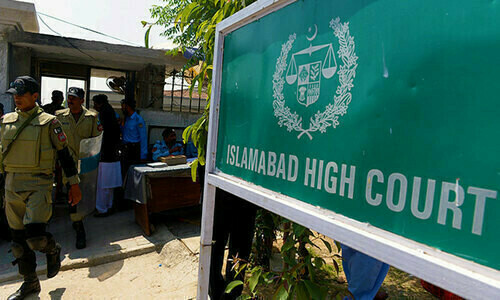NEW YORK, Sept 24: The US invasion and occupation of Iraq have strengthened the forces of global terrorism by fanning Islamic radicalism and providing a training ground for lethal methods that are increasingly being exported to other countries, said an assessment of US intelligence agencies.
A report in two major American newspapers on Sunday says the classified document, which represents a consensus view of all 16 US intelligence agencies, paints a considerably bleaker picture of the impact of the Iraq war than Bush administration or US intelligence officials have acknowledged publicly, according to officials familiar with the assessment.
The classified National Intelligence Estimate attributes a more direct role to the Iraq war in fuelling radicalism than that presented either in recent White House documents or in a report released on Wednesday by the House Intelligence Committee, according to several officials in Washington involved in preparing the assessment or who have read the final document, the New York Times said.
The intelligence estimate, completed in April, is the first formal appraisal of global terrorism by United States intelligence agencies since the Iraq war began, and represents a consensus view of the 16 disparate spy services inside the government.
Titled “Trends in Global Terrorism: Implications for the United States”, it asserts that Islamic radicalism, rather than being in retreat, has spread across the globe, the newspaper said.
An opening section of the report, “Indicators of the spread of the global jihadist movement”, cites the Iraq war as a reason for the diffusion of jihad ideology.
“The report says that the Iraq war has made the overall terrorism problem worse,” one American intelligence official told the Times .
Over a dozen United States government officials and outside experts were interviewed by the NYT and all spoke only on condition of anonymity because they were discussing a classified intelligence document. The officials included employees of several government agencies, and both supporters and critics of the Bush administration.
All of those interviewed had either seen the final version of the document or participated in the creation of earlier drafts. These officials discussed some of the document’s general conclusions but not details, which remain highly classified.
The newspaper said officials with knowledge of the intelligence estimate said it avoided specific judgments about the likelihood that terrorists would once again strike the United States. The link between the Iraq war and terrorism, and the question of whether the United States is safer, have been subjects of persistent debate since the war began in 2003.
Analysts began working on the estimate in 2004, but it was not finalised until this year. Part of the reason was that some government officials were unhappy with the structure and focus of earlier versions of the document, according to officials involved in the discussion.
The Times said the “previous drafts described actions by the United States government that were determined to have stoked the jihad movement, like the indefinite detention of prisoners at Guantánamo Bay and the Abu Ghuraib prison abuse scandal, and some policy makers argued that the intelligence estimate should be more focused on specific steps to mitigate the terror threat. It is unclear whether the final draft of the intelligence estimate criticizes individual policies of the United States, but intelligence officials involved in preparing the document said its conclusions were not softened or massaged for political purposes.”












































Dear visitor, the comments section is undergoing an overhaul and will return soon.